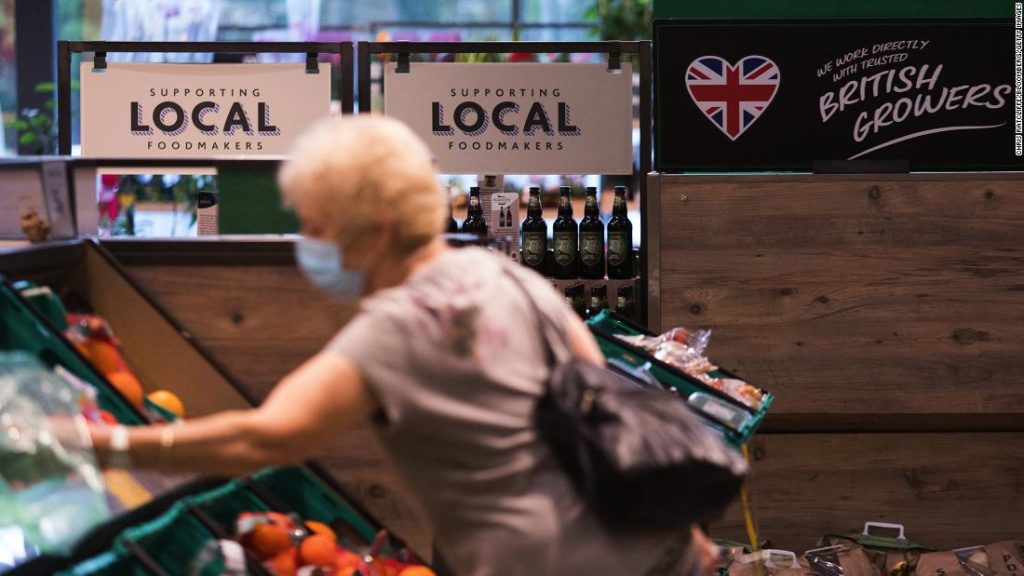The move comes amid heightened investor activity in UK retail and a spate of takeover bids for British companies, undervalued for years because of poor returns linked to drab growth and a weak pound following the Brexit referendum of 2016.
Analysts are speculating that Tesco, Britain’s biggest supermarket chain, might also attract a buyer.
“The volume of liquidity, reflecting monetary policy, and the uptake of capital by family offices, high net worth investors and private equity, means that even Tesco, with its £18 billion ($25 billion) market capitalization, is not too big to be subject to an offer,” Clive Black, head of research at Shore Capital said in a note on Monday.
Sainsbury’s and Tesco, which benefited from a surge in demand during lockdowns, are now poised to benefit from a strong economic recovery in Britain following the pandemic. Analysts say shoppers are likely to continue eating more meals at home even with restaurants reopening, particularly as many offices remain closed.
Tesco CEO Ken Murphy told analysts on a call on Friday that online demand has been “incredibly resilient even with the easing of restrictions.”
“We expect sales to remain well above pre Covid-19 level through the remainder of the year,” he added.
Both leading retailers have also managed to keep costs under control, are generating large amounts of cash and have narrowed price gaps with German discounters Aldi and Lidl, according to Shore Capital’s Black.
But the market is not betting on a rival bid from Amazon. “There is no indication in the [Morrisons] share price today that Amazon will come in and outbid Clayton, Dubilier & Rice,” said Russ Mould, investment director at stockbroker AJ Bell.
With a languishing share price and over £7 billion ($9.7 billion) in assets, including a real estate portfolio worth more than the company’s market value, Morrisons “ticks a lot of private equity boxes,” he told CNN Business.
Returning to favor?
Investor interest in UK assets extends beyond grocers. There have been over 50 bids for UK-listed companies in the last eight months, only six of which have since been abandoned, according to Mould.
The average premium offered has been 34%, indicating that many of these companies may be undervalued by the market following years of weak shareholder returns. Over the last 12 months, there have been 95 announced offers for UK-listed companies with a combined value of $107 billion, according to Dealogic data.
“The UK has consistently underperformed on the global stage since June 2016’s Brexit vote and sterling has failed to regain the levels at which it traded before Britain decide to leave the EU,” Mould said in a recent note. “That rotten effort may mean that UK stocks are unloved and therefore potentially undervalued,” he added.
UK and European stock market indexes stand to benefit from the post-pandemic recovery, given the high representation of companies such as automakers and banks that perform well when the economy is on the upswing.
They may also offer better value for investors following much more robust gains in US indexes over the past decade, when European markets have been held back by a dearth of tech companies and lackluster economic growth in the region.
— Julia Horowitz contributed reporting.
Correction: An earlier version of this article misstated the number of bids for UK-listed companies recorded over the past year.
You may also like
-
Afghanistan: Civilian casualties hit record high amid US withdrawal, UN says
-
How Taiwan is trying to defend against a cyber ‘World War III’
-
Pandemic travel news this week: Quarantine escapes and airplane disguises
-
Why would anyone trust Brexit Britain again?
-
Black fungus: A second crisis is killing survivors of India’s worst Covid wave

